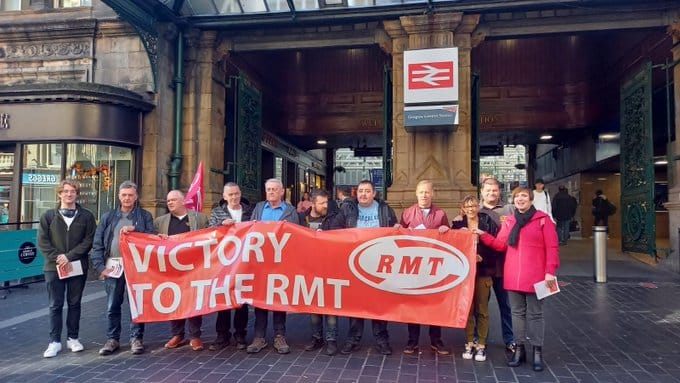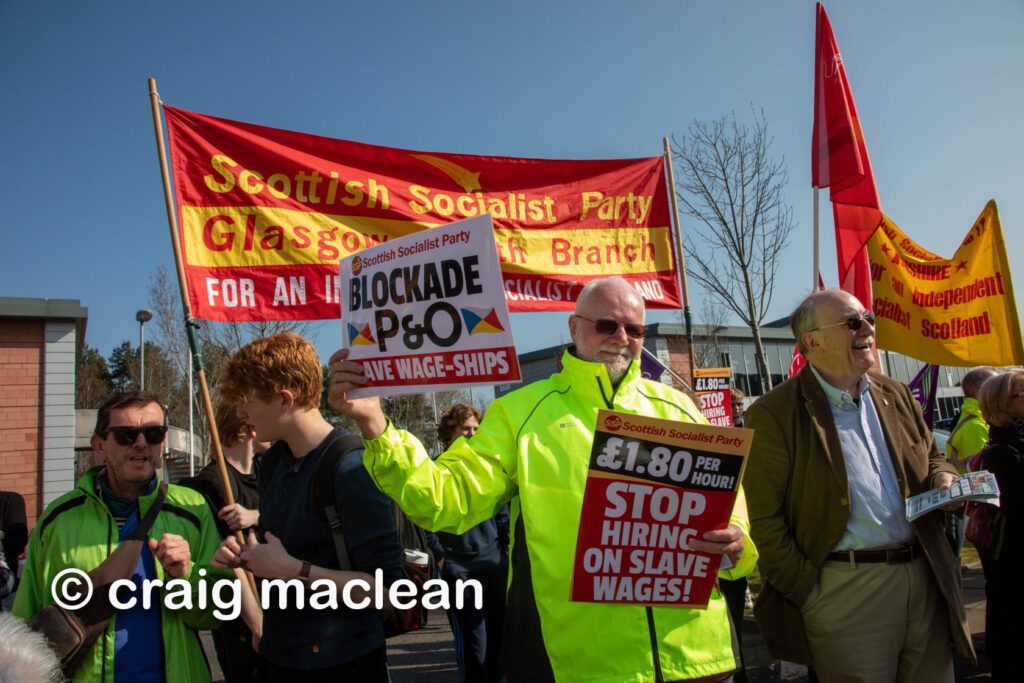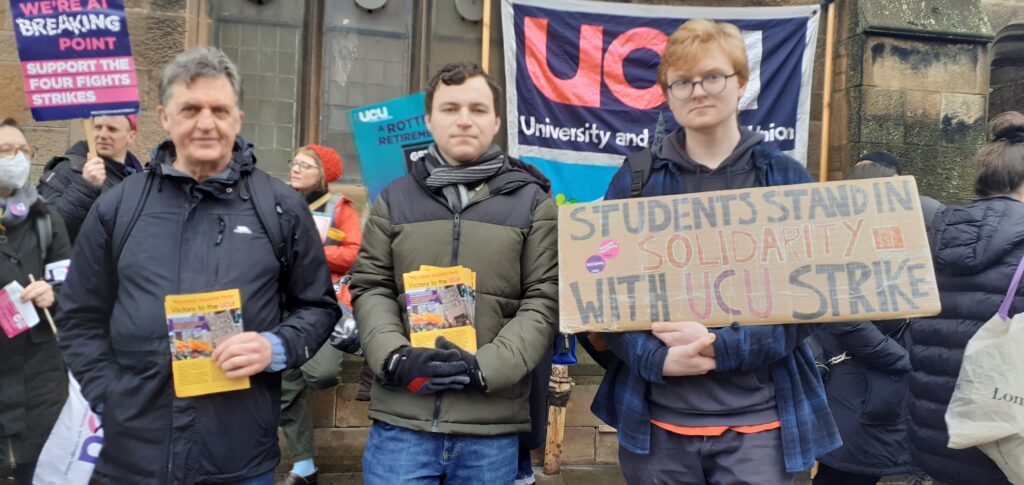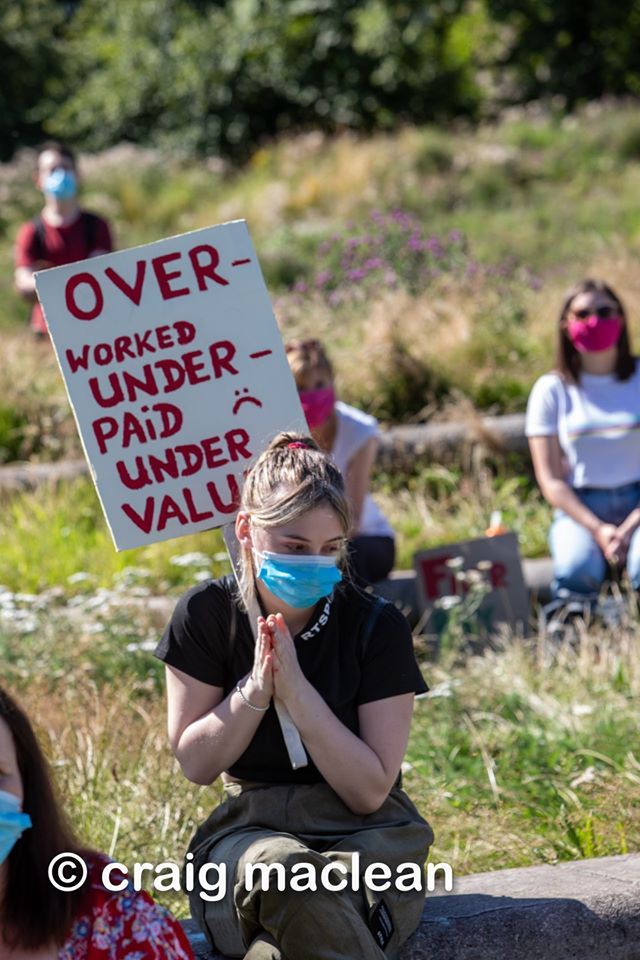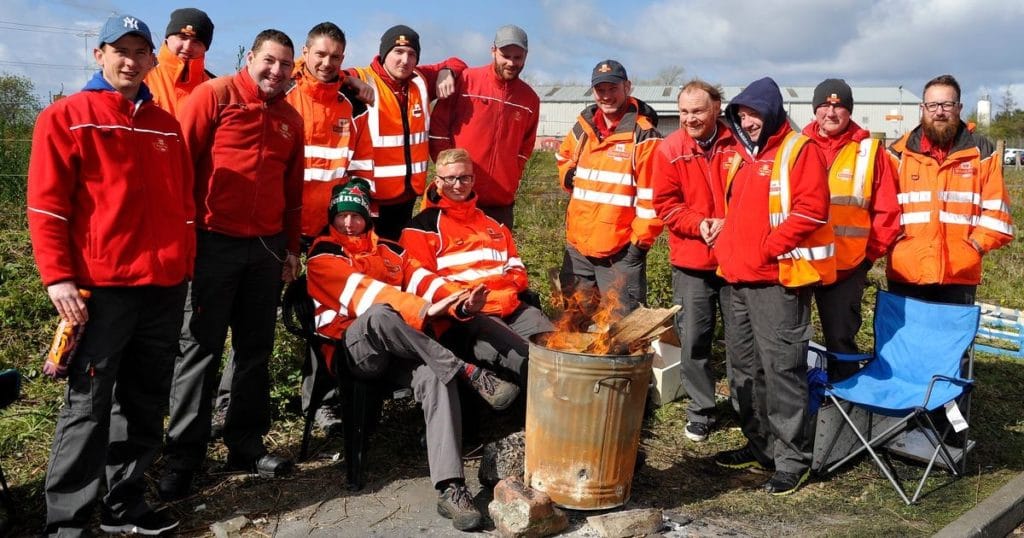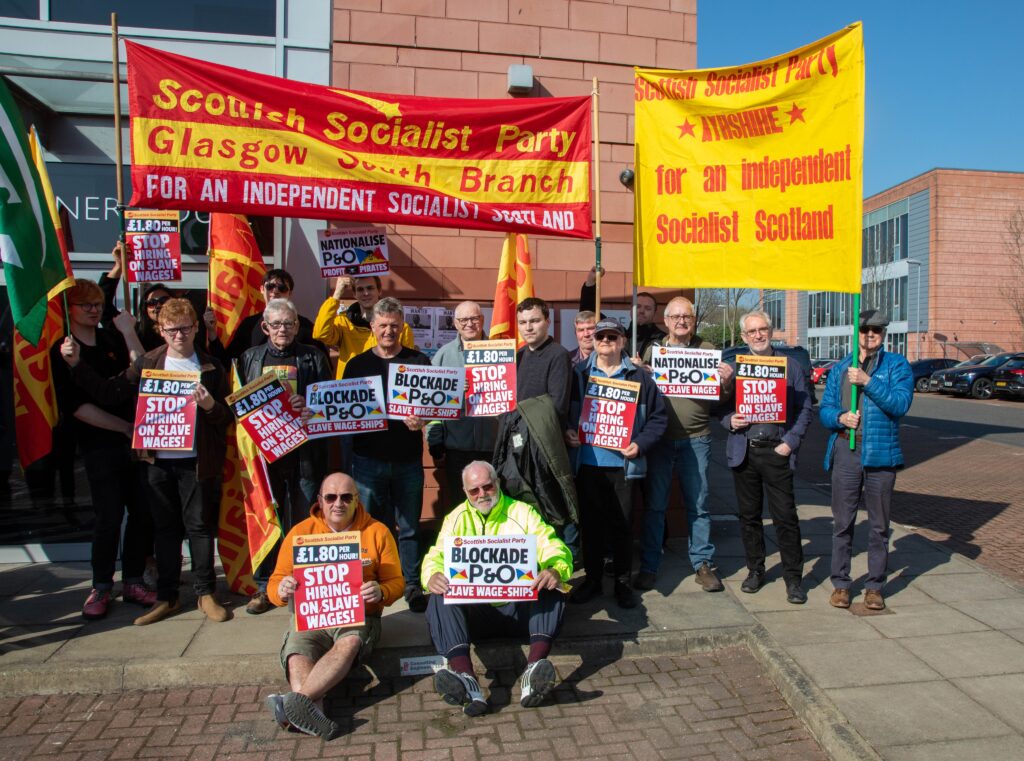Could you tell us about Razem’s history and politics?
Razem was formed in 2015 by a group of leftist activists with years of experience in the Polish green and feminist movements, along with members of the Young Socialists.
The impetus for creating a new party was two-fold.
One was the frustration that emerged under the liberal Donald Tusk government (2007‒14). Whenever voices started to demand the government focus on social spending instead of cuts and privatisations, Tusk’s response was to say Poland was still in its transformation stage [towards a market economy] and that now was not the time to build up a welfare state.
Frustration grew as neoliberal policies were implemented at breakneck speed to indulge business elites, while people were denied even modest social benefits and public services were being dismantled.
All this occurred as anti-austerity protests were taking place in Greece, something we supported and that inspired Razem.
The other major factor was the protests against the Iraq war and against Poland’s participation in the occupation of Afghanistan. Several activists who went on to build Razem came from these protest movements.
The revelations of alleged illegal US prisons in Poland used to torture al-Qaeda members created huge outrage. Seeing the Polish government bow down to US imperialism unchallenged — and in fact encouraged by the mainstream, including former Solidarność activists — fuelled frustration on the left.
 Razem was formed as an expression of this anger and frustration that had built up during the transformation process.
Razem was formed as an expression of this anger and frustration that had built up during the transformation process.
This particularly still concerns the young. Unlike the old Communist establishment or the new liberal elites aligned with business, they did not get the opportunity to enrich themselves during the transformation period.
Entering professional life, let alone starting a family, has become — and still is — a very difficult thing if you are living precariously.
Our co-leaders Magda Biejat and Adrian Zandberg have been highlighting the housing situation, particularly as rent and real estate prices have risen dramatically.
Poland is also facing depopulation, with the abortion ban discouraging women from getting pregnant and high cost of living pressures, which prevent young people from starting an independent life.
In terms of Razem’s politics, I would say one difference between Razem and much of the Western left is that we do not use ideologised language and instead communicate left values organically.
This is because, after the 1990s [with the fall of the Communist regime], even using the word “socialism” became problematic. There was a backlash that the right wing and neoliberals gladly exploited to discredit any ideas of a social state.
This happened despite the fact that Poland’s socialist tradition is much older than the Eastern Bloc’s existence and played a hugely significant and positive role in the building of the Polish independent state. Not to mention that, contrary to what conservative ideologues want you to believe, the ideals of Solidarność were socialist.
Razem was [also] inspired by the modern left approach adopted by Podemos, who demonstrated how to communicate socialist ideas in a different way.
[Podemos] showed that it was very important to find new ways to break up right-wing duopolies. In the case of Polish politics, we have a duopoly between the liberal and conservative right that dominates the scene.
We had to first bring back the left and insert left issues into the centre of Polish political debate. We had to bring back social protest and unionising into everyday Polish political practice — and we succeeded. These were our motivations.
Since then we have engaged in an, at times dramatic, fight for space on the terrain of this duopoly. The duopoly manifests itself as a war of right-wing tribes that is a source of sustenance to their elites. So it was vital for us to avoid the trap of engaging in empty arguments.
Polish liberals reduce every social-political question to whether this helps defeat the conservatives, and vice versa, while never considering any problems on its merit. The Polish people are tired of this ritualistic fighting.
They appreciate the fact that our six MPs instead focus on talking about the issues. Parliamentary speeches by Adrian Zandberg, are something of a hotly anticipated public event because they give a rare sense of getting real among all this ruckus. They resonate because there is anger and people want solutions and real action. And they know they can depend on us for those.
People value Razem MPs showing up early at a strike to support workers’ demands and to facilitate bringing the entitled bosses to the table. This is where we were able to make a difference in several industrial actions in recent years.
Poland is often grouped as part of a conglomerate of far-right authoritarian countries in Eastern Europe. How accurate is this? What can you tell us about the current government?
The same year Razem was formed, a conservative Christian government was elected. They found that the key to winning was to offer something that people wanted, some kind of social benefit — in this case a child allowance — but which the liberals had been refusing to give.
The conservative government only secured a majority because it incorporated social elements into their agenda.
Polish society, when asked about the policies they prefer, most often point to a form of social democracy with solid public services. The conservatives have exploited this need to their political benefit — but have clearly failed to deliver any comprehensive social agenda.
In any case, it is clear that to grab power they did not campaign on banning abortion or dismantling the judicial branch of the state. But right after they came to power, they attacked human rights and the state’s institutions. They started stirring up culture wars in later campaigns, for example, scapegoating and harassing LGBT people.
Yes, these policies are supported by the Catholic Church. The conservative majority owes the Church huge favours — a lot of this stuff happens as a form of a clientelist exchange between the Church and the government. But these are not policies that have majority support.
Polls show the majority of the Polish people want legalisation of abortion and civil unions for same-sex couples. Polish society has been secularising dramatically in recent years. The conservatives have been losing this battle and the rabid reaction of fundamentalist groups embedded in the government’s environment reflects this.
Unlike in Hungary, the Polish government has not been able to undermine the electoral system, and while attempts to take over the judiciary have been largely successful, they faced popular protest.
Moreover, due to the European Union’s resistance to accepting these illegal reforms, the government has hit a wall of Polish EU-enthusiasm.
This is a major difference with Hungary: the government here was not able to find an easy way around the fact that people won’t support any hint of “Polexit”.
Neither will Razem, by the way, as we believe the EU badly needs social and democratic reform, but that Poland should stay and contribute to fostering integration and partnership on the continent.
This fact about Poland being pro-European integration helped defeat the government’s attacks on our checks and balances.
The result was that all the Orbanite moves the government did, including the persecution of women and LGBT people, sparked a wave of unprecedented protest. The protests against the abortion ban were huge and spanned all levels of society.
This caused a dramatic dip in the polls and the conservatives are unlikely to win a parliamentary majority in this year’s elections.
As to the idea of Eastern Europe as essentially authoritarian and full of far-right nationalists, I would say this is the result of decades of dismissing Eastern Europe agency. It is often the default, convenient portrayal in the media that flatters egos in the West.
We all know what trouble Western European countries are in regarding right-wing threats, look at Italy or France with [Giorgia] Meloni and [Marine] Le Pen, or the recent plot by German extremists to overthrow the system.
But somehow the global media and Russian propaganda manage to draw exclusive attention to right-wing authoritarian tendencies in Eastern Europe, obscuring the fact that there are left movements and a progressive civil society, and disregarding the emancipatory and democratising impulse that is well alive in the people. This contributes to the image of Eastern Europe as an especially conservative backwater, hostile to progressive ideas, which is not really the case and certainly is not a constant.
Of course, there are elements of this, but it is being incredibly exaggerated in the West, including within the Western left. Look at Slovenia with Levica, Croatia with Mozemo, Latvia with Progresivie or Poland with Razem, and you will discover inspiring left movements implementing progressive change in their country and municipal politics — and there will be more surprises like that in the future which should be acknowledged.
Particularly regarding Ukraine, it is vital movements such as Social Movement are supported in the context of resistance and rebuilding after Russian aggression is defeated.
How did Razem respond to Putin’s invasion of Ukraine? Why does Razem insist on the need to come to grips with Russian imperialism?
Razem had no doubts about how to react given our countries’ common historic experience with Russian imperialism. We had absolutely no doubts that this invasion represented an existential threat to Ukraine, that there could be no compromise, and that our party’s reaction was crucial.
Unfortunately, we were very disappointed with progressive organisations, including ones that at the time we belonged to, that kept silent right up to and after the invasion, and even after the Bucha massacre.
This was disappointing but also, I admit, we may have been a bit blind to an obvious tendency that exists within part of the left to overemphasise US imperialism while letting Russian imperialism off the hook. It quickly became clear a big part of that left is not able to accept what for us are two existential issues: that Ukraine is a sovereign state and that there is such a thing as Russian imperialism.
In contrast, representatives of the left in Poland (Razem), Finland (Left Alliance), Lithuania (Left Alliance), Czech Republic (Alliance For The Future; The Left) and Romania (Democracy and Solidarity Party) met in Warsaw on March 8 with representatives of Ukrainian left organisation Social Movement to listen to them and ask them what they needed. The Danish left (Red-Green Alliance) was not present at the meeting but later indicated their support.
It became clear that we should campaign, first, to support the left and Ukraine’s armed resistance. This was done against considerable pushback from the so-called anti-war movement in imperial or post-imperial Western societies.
We often found that Ukrainian leftists had to fight even for their right to speak at events organised by the Western left. So this was a struggle and remains a vital point: to assert the existence and amplify the voice of the Ukrainian left. Their voice, once heard, inevitably cuts through all propaganda smokescreens — they lead a righteous fight for self-determination against an imperialist aggressor, no doubt about it.
Since then, the unity initiated in Warsaw has extended to other Nordic and Central European left parties, and more recently to left groups in the Balkans. We are building a network to share information not only about our common experience with regards to Russian imperialism but also regarding the process of harsh neoliberal transformation in states of the former Eastern Bloc.
Together with Social Movement and other allies such as the Portuguese Left Bloc or the Swedish Left Party we also launched a campaign to cancel Ukraine’s debt, which is restricting Ukraine’s war efforts and the ability to maintain its economy afloat. We have had some successes: a bill has been passed in the US House of Representatives calling on the US government to influence lenders on behalf of Ukraine, and the issue has also been raised in the UK and European parliament.
This is a campaign we hope to build on as an example of concrete solidarity and outward campaigning. We prefer to offer concrete solidarity, work with parties, trade unions and movements that are accountable to voters, members and the public.
Debates on realist geopolitics regarding multipolarity perhaps drive book sales, Twitter likes and invitations to panel debates, but they do not help the Ukrainian people who fight off genocidal aggression of a neighbour who wagering on neocolonialism in the 21st century.
How do you view the issue of NATO expansionism?
We are clear that the influence of Western militarism is not welcome in Poland. But we recognise that we are in a complex situation. Unlike the left that operates in the heart of an empire, the left in our part of Europe cannot afford to take a purely ideological stance that is divorced from the security realities of the peoples of our region.
On the one hand, given the lack of a proper European security architecture, NATO currently represents the only guarantee of protection for Polish citizens. The vast majority of Poles want this protection, because they know the threat Russian imperialism poses. That is why I do not think that we can honestly talk about NATO expansionism in our region. Instead, what we had was countries desperately applying to join NATO in the 1990s, while the US was initially not so favourable to us joining.
For people in our region, Russian expansionism is the existential threat. And it is Russia that is expanding towards and across our region — by invading Ukraine.
If you look honestly at the history of NATO-Russia relations regarding Europe, you will see it was Russia who regularly step forward first with the will to escalate.
Politically, you can speak of appeasement regarding Western European policy towards Russia in recent decades. Militarily, regarding troop and weapon deployments, you cannot speak of provocation.
On the other hand, Razem has actively opposed any Polish participation in NATO’s contemptuous, hardly legal, interventions, such as in Afghanistan, Libya, Iraq, etc. Any arbitrary action that is motivated by primitive extractionism or forced upon the alliance members via political pressure from the US is for us the true meaning of “NATO expansionism”. And we oppose it.
We are also clear that such actions have only emboldened Russia, and provided it with precedents to carry out its own brazen imperialist actions.
Razem is aware that there are several imperialisms at play in our part of Europe and that we cannot afford to take sides supporting one imperialism over another.
10 January 2023
Original Source Green Left, 10 January 2023, this version from International Viewpoint: https://internationalviewpoint.org/spip.php?article7948



 Razem was formed as an expression of this anger and frustration that had built up during the transformation process.
Razem was formed as an expression of this anger and frustration that had built up during the transformation process.

